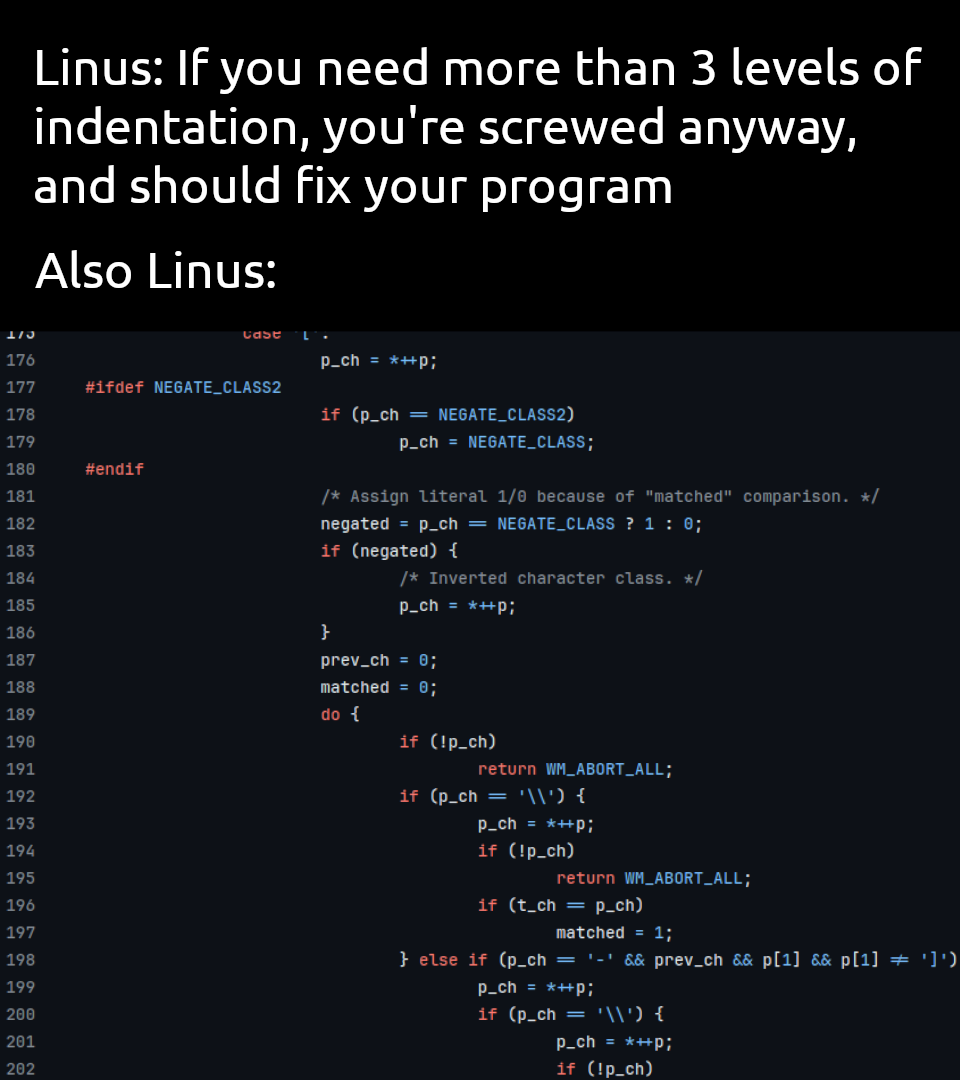this post was submitted on 09 May 2024
434 points (92.1% liked)
Programmer Humor
32710 readers
832 users here now
Post funny things about programming here! (Or just rant about your favourite programming language.)
Rules:
- Posts must be relevant to programming, programmers, or computer science.
- No NSFW content.
- Jokes must be in good taste. No hate speech, bigotry, etc.
founded 5 years ago
MODERATORS
you are viewing a single comment's thread
view the rest of the comments
view the rest of the comments

mod namedeclares that the module should be compiled and reachable as a submodule of the current module. This assumes that you have a file or directory of the name in the right place. This is what you should do.You can also declare a module like this:
mod name {...}where you just put the content in the block. The two are functionally equivalent, from the compilers perspective.I don't understand how to follow this bullet point that I was replying to.
I already know what mod does in a basic sense, I wanted to know what the commenter meant by this.
This point advocates against the use of mod with content in a file unless it is used for a testing module. A common pattern is to have the unit tests for a module inside the main module file. Tests in rust are just specially tagged functions. To avoid compilation costs in non-test builds and false unused code warnings you can put all test related code in a submodule and tag that module with
#[cfg(test)]. That way the module will only be included and compiled if the crate is being compiled to run tests.The Star wars thing refers to scrolling long text files similar to the intro of the starwars movies where a long text is scrolled for the viewer.
Oh so its just referring to writing the mod's code in the same file the mod is declared in being bad form? That seems very reasonable; since the point of a module is code separation so it makes sense to always put it in its own file. Good, I'm already doing that at least!